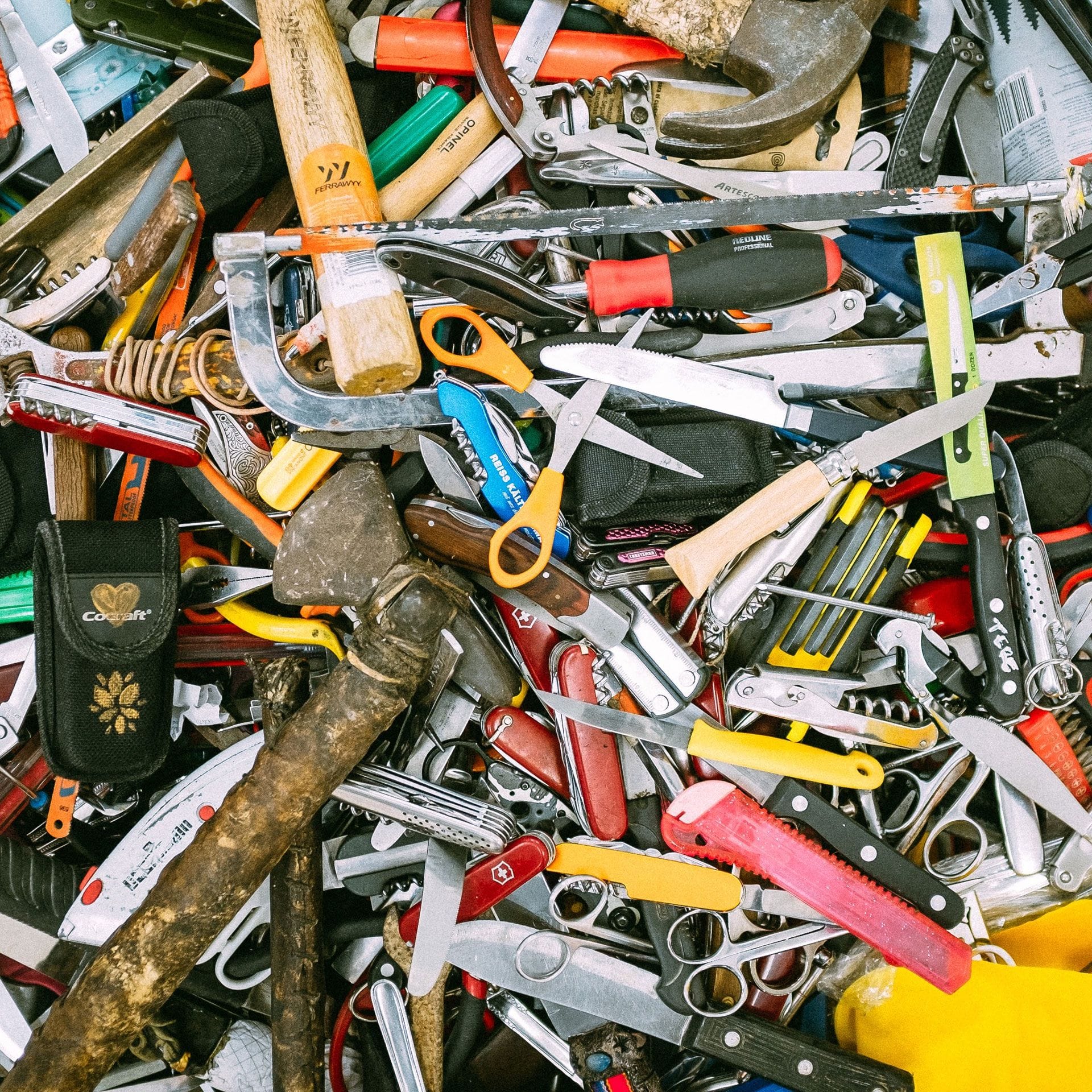Fixin' stuff

Why fixing stuff is awesome
I love to fix things. What's More, I'm pretty decent at it. God has given me this strange affinity to problem solve. Put me into a situation where something needs doing and I am like a kid in a candy shop.
There are a ton of different situations where I could talk about the MacGyver-esque skills that have gotten me through tough situations (not a title I gave myself) like how I hot-wired my motorcycle when I was 75 miles from home because I forgot the keys, or another time with that same bike where I was miles from home and the neutral safety switch started stalling the motor so I hot wired the switch with a paperclip and some zip ties. Or how about the time that I needed to get home after getting rear ended but my rear tire was rubbing too badly to drive far. I popped the spare on to get home.
Closer to home there is the time that I needed to fell a small-medium sized tree, leaning the wrong way, in a confined area. I was able to do a controlled fall through the use of good technique and a jury-rigged come along + rope to fell it right where I wanted it. Another time I took a couple of bad lawnmowers and put them together to make one working unit.
There are more but I think I've made my point. I LOVE TO PROBLEM SOLVE. I don't recount these things to toot my own horn but it's hard to make my point about the importance of ingenuity without some examples. Therefore what is my point you ask?. Why does any of this matter? Well I think the reason that fixing stuff is awesome (and important) is that it speaks of you, the individual's, ability and willingness to problem solve. You see, HOW you approach a problem is sometimes more important than what you do to fix it.
Life is rife with problems, both tangible and intangible. These days help is almost always a click or phone call away. When you have a problem with your dishwasher or your car there are people that you can pay to help you with those things. Indeed I'm not trying to convince you that outside help is without merit but they have become the default action for many. The beauty of being able to solve issues yourself is that when problems come up, calling someone is not the first response. It may not be the second or third or even a response at all. My first response when I have things break is to try to understand the problem. What is the issue? What can I observe about the problem? Is there any clues or otherwise noteworthy things about it? It's a bit of detective work. From there I can ascertain the level of complexity it will take to fix it. If it is within my comfort level (and sometimes even when it lies somewhere on the line) I know I can fix it myself. I may not know at that moment the exact way to fix it (there is a time for research) but by then I'm confident I can figure it out. The biggest win with fixing something yourself is you get more than just the problem solved. The reward is exponential! First, you often save money which is always a great thing. Second, you gain knowledge and understanding of how to fix this or similar issues in the future, also very nice to know should it the problem happen again. Finally, you gain confidence knowing more about your stuff which give you greater independence. Win, win, win. The flipside is that when you call to have some problem fixed for you you often have to spend money and you lose out on those other great benefits.
Back to the dishwasher I slipped in above as a concrete example. I actually had a problem with mine recently and here is how I went about fixing it. First I asked the obvious: What's wrong? Then I proceeded to more in depth questioning: Does it turn on? Yes. Does it still wash? Sorta. Does it sound like it normally does when it washes? No. What sounds different? The water pump at the beginning sounds different. How? Like it isn't getting water. What would cause it to not get water? The float valve that controls water in could be stuck?..I took a look at the float valve and sure enough I found a tool bit stuck under it signaling to the dishwasher that it was 'full' of water when in reality there is none. Why there was a tool bit in the dishwasher is another fix-it story but after I removed it I got the dishwasher working again. Had I not spent the time to understand and then further diagnose the problem I would have either A) Broken my dishwasher B) Needed to call a technician out to repair the water problem or C) Both broken it and needed to call a technician out fix to fix the completely broken unit.
It should be plain now that this skill has all kinds of practical implications. I would encourage everyone to develop at least some level of understanding (basic) that allows them to troubleshoot those little things in life. You'll gain valuable understanding and first-hand knowledge that is otherwise not available to people. Who knows when that knowledge could come in handy?
How about it? Do you agree? Do you have any examples of DIY that saved your rear-end? If so let me know! Otherwise I hope you start to develop this essential skill today.